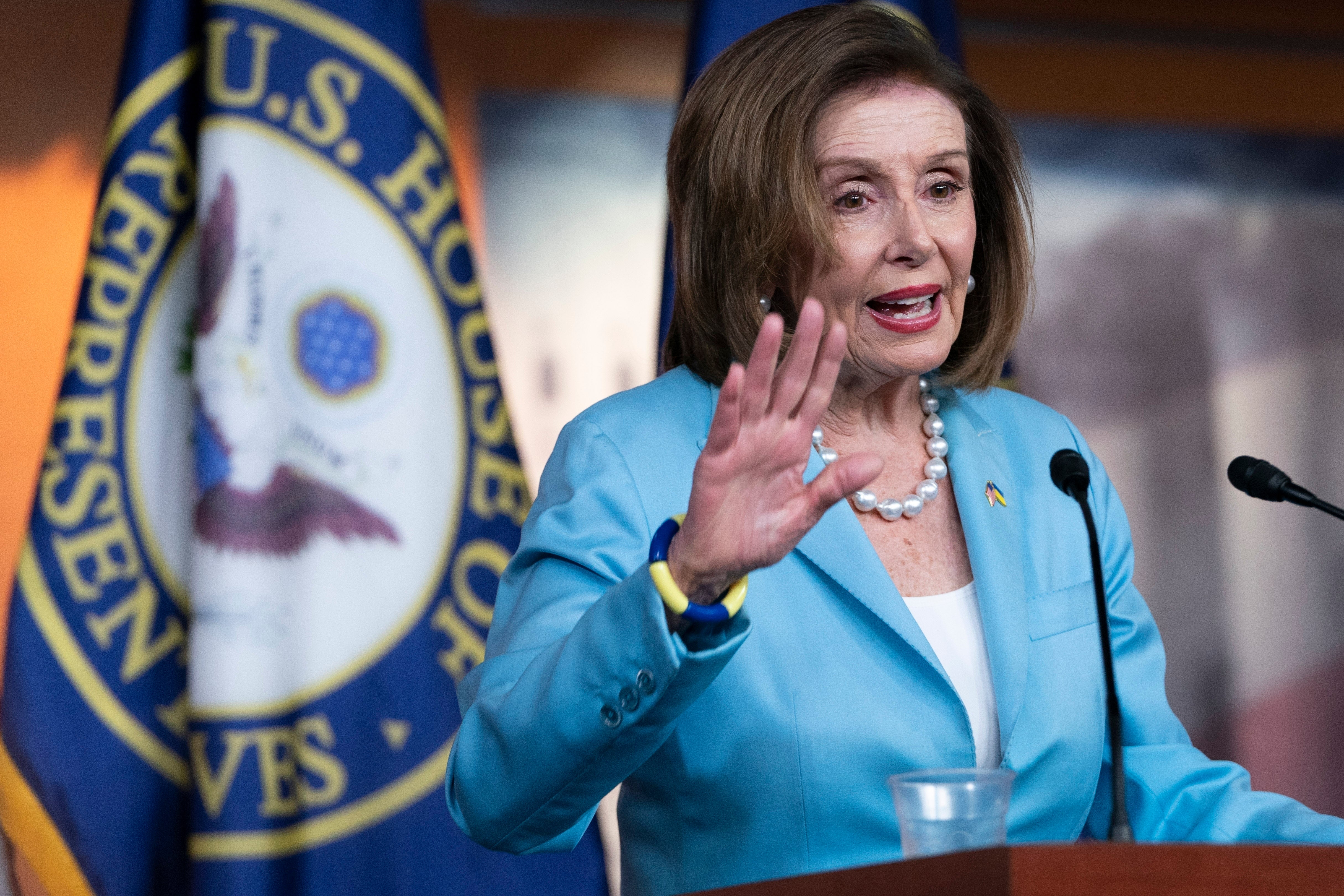The US may finally have shown Boris Johnson the consequences of Brexit
Editorial: Speaker Nancy Pelosi has warned the PM that if he does tear up the Brexit deal, he also shreds his chances of winning a free trade deal with the United States

Even someone as complacent and blindly optimistic about Brexit as the prime minister must realise that he now has to deal with disquiet in Washington, as well as resistance in Brussels, Paris, Berlin and Dublin, in his attempt to renegotiate his Brexit deal.
When Boris Johnson met Joe Biden for talks last September, the prime minister emerged from their meeting muttering that “Joe has a lot of fish to fry”. It sounded like a bruising discussion.
Just in case the prime minister is suffering from one of his occasional bouts of wishful thinking, though, Nancy Pelosi – speaker of the US House of Representatives – has chosen this moment to remind him that if he does tear up the Brexit deal, then he also shreds his chances of winning a free trade deal with the United States.
This transatlantic economic partnership was, after all, supposed to be one of the great Brexit opportunities – a chance to hitch the UK to America’s dynamic business world rather than the supposedly sclerotic EU. At this rate, however, the EU will probably have ratified a trade deal with the US before the British get to the negotiating table.
Speaker Pelosi is very clear: “As I have stated in my conversations with the prime minister, the foreign secretary and members of the House of Commons, if the United Kingdom chooses to undermine the Good Friday accords, the Congress cannot and will not support a bilateral free trade agreement with the United Kingdom.”
Her initial warning is likely to be followed up by the delegation of American congressmen and congresswomen arriving in London this weekend. In due course, President Biden looks set on appointing a special envoy to deal with the crisis in Ireland, protect the Good Friday Agreement, and persuade the UK not to ditch the protocol or amend it unilaterally. The recent mission to Washington DC by Conor Burns, acting on behalf of the prime minister, doesn’t seem to have changed many minds.
The irony here is that the UK is even more sensitive to economic pressure from the United States now that it has left the EU, because a US trade deal would be so much more valuable now, economically and politically, than when the UK was still an EU member state (and enjoyed the superior clout and bargaining power afforded by that). In any case, this dangerous crisis over Northern Ireland would not have arisen without Brexit.
There is also something rather pathetic about the British international trade secretary, Anne-Marie Trevelyan, bragging about “trade deals” she has secured with individual states. At best, these are about reducing some regulatory barriers on a voluntary, “memorandum of understanding” basis: the US constitution specifically reserves to Congress powers over binding treaties and tariffs.
States such as California (whose economy is about the same size as Britain’s) and Texas are valuable markets, but if the main aim is to pressure the Biden White House into opening talks, then this effort may be counterproductive.
In the heady days after the 2016 referendum, there was much talk about how easy it would be to secure trade agreements with the EU and the US, but also with China and India. It is fair to say that the reality has proved rather different. Many of the trade deals agreed subsequently by the UK, such as those with Japan and Kenya, say, more or less rolled over existing EU arrangements.
Those with Australia and New Zealand may prove to be more ambitious (the government is being cagey about impact assessments), but none of them, even taken together, make up for the loss of EU markets and frictionless supply chains, let alone the flow of labour and skills between Britain and Europe. The British seem not to have taken the hint dropped by President Obama before the referendum, when he said Britain would be at the back of the queue.
When Donald Trump was in the White House, warm words were forthcoming, but not an actual deal. Even if a deal had been made, it might not have survived – because all trade deals have to be ratified by Congress in any case. It is a legislature famous for its vested interests and time-consuming procedures.
If President Biden did decide to speed up the pace of the currently cursory UK-US talks, he might well drive a hard bargain on US access to British markets – including healthcare – and in relation to agricultural products, with the infamous chlorinated chicken becoming a wishbone of contention.
To keep up to speed with all the latest opinions and comment sign up to our free weekly Voices Dispatches newsletter by clicking here
Even the return of Donald Trump in 2024 wouldn’t guarantee any kind of trade accord, let alone one that favoured Britain. Putting a bust of Winston Churchill in the Oval Office is one thing; selling out American farmers is quite another.
President Biden has already laid down one formidable, if informal, condition to any UK-US trade deal, which is that the UK-EU trade and cooperation agreement and the Northern Ireland protocol must be honoured. With Washington and Brussels united on the issue, the protocol is effectively non-negotiable, whatever the DUP or Liz Truss might say.
The British are slowly discovering just how “taking back control”, along with the exercise of sovereignty by a medium-sized power, works in a world dominated by huge trading blocs. It isn’t helping Britain to “prosper mightily”, as Mr Johnson used to promise.






Join our commenting forum
Join thought-provoking conversations, follow other Independent readers and see their replies
Comments